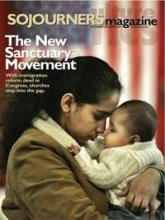Is it really just my father who does the time?
No, it is me too.
Although he's locked away I am locked away too.
Not behind bars but from the relationship we used to have.
... at night I sit in my house that now feels like a prison and
think about the times we used to share or how much time there is
before we can share another time.
That truly hurts me but there's nothing I can do unless we do our time.
... so I ask you, who really does the time? —Lonnel, age 16
A t Hope House D.C.—where our mission is to help incarcerated fathers stay connected to their families—we believe that when a father or mother goes to prison, the whole family goes too. We see it in the lives of mothers who must work two or three jobs to make ends meet. We see it in the failing grades of children as they struggle to cope with feelings of abandonment and loss. We see it in our community, where thousands of men and women are missing in action from their families.
More than 2.1 million people are incarcerated in U.S. prisons—more than quadruple the number of people in prison two decades ago. This means that a lot of children have been left behind by incarcerated parents. The Child Welfare League reported in 2004 that more than 2 million children were in Lonnel's shoes, with at least one parent in prison. Children who experience the incarceration of a father or mother are five times more likely to end up in prison themselves, and often experience some of the same kinds of emotional difficulties as children who lose parents through divorce or death. Our Hope House kids often feel abandoned by an incarcerated parent, which leads to feelings of rage, shame, depression, and guilt.
THERE IS A STIGMA attached to having a parent in prison that leads kids to conceal their father's or mother's incarceration.
Read the Full Article
